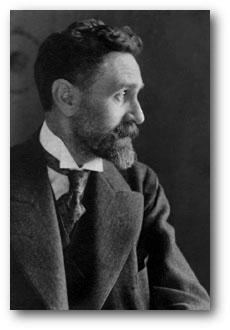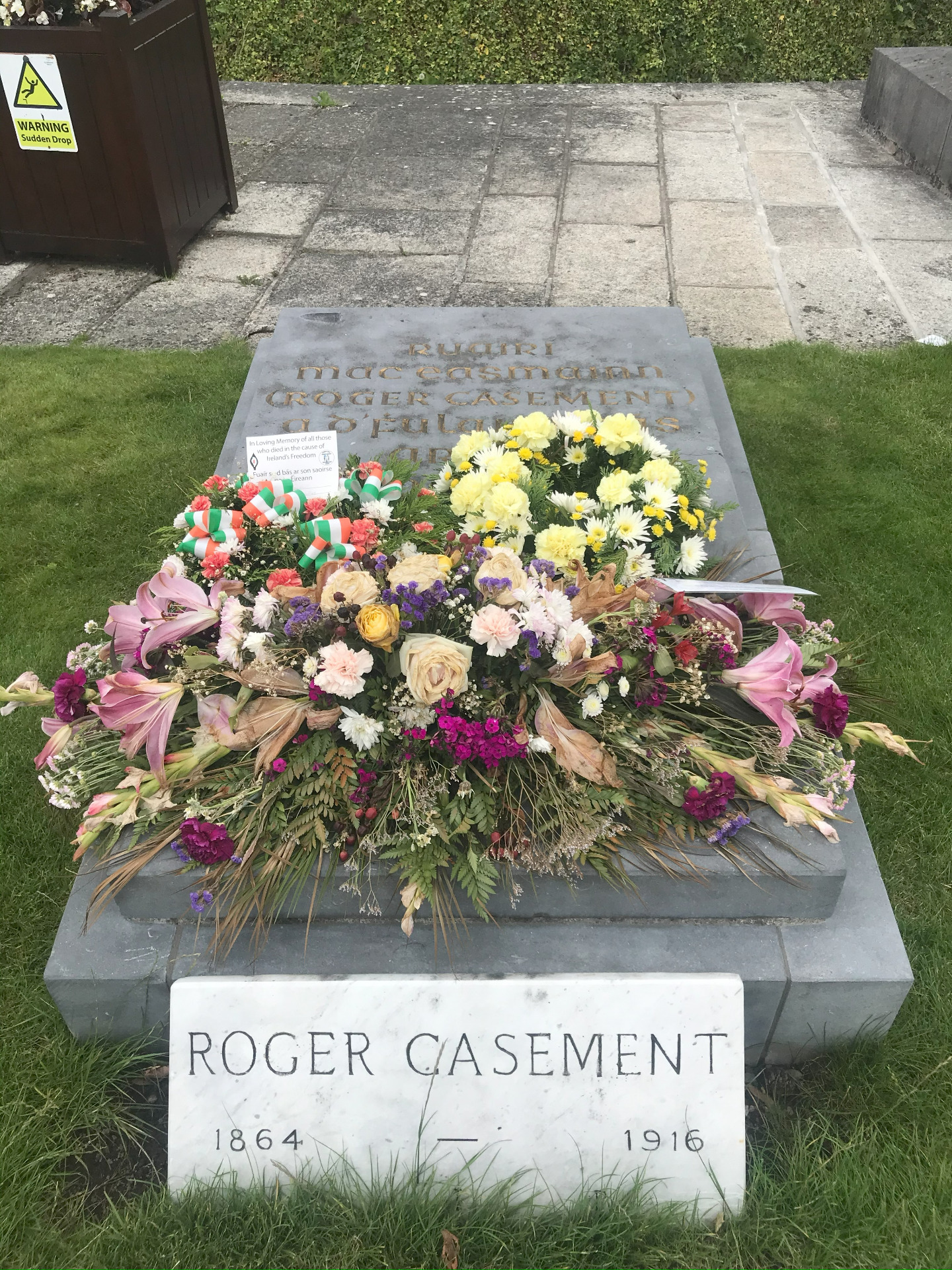Roger Casement (1864-1916)

Caroline Guerin McGrath
Casement was born in Sandycove, Dublin on 1 September 1864 to a Protestant father and a Catholic mother of planter stock. After losing his parents at a young age, he was educated in Ballymena. There he gained a passionate interest in the Irish language and history, which would later give him a unique perspective on the events he was to witness in the Congo and the Amazon.
Later, he spent time with his uncle Edward Bannister, who was a British Consul with experience of working in Africa and other regions of the British Empire.In 1883, Casement embarked on a twenty year expedition of Africa. This culminated in a report which excoriated King Leopold II of Belgium, who claimed control over the Congo Free State, for cruelty and inhumane treatment to the Congolese workers. The rubber industry is estimated to have caused the deaths of over 10 million people from exploitation and disease between the years of 1885 and 1908.
The publication of Casement's report in 1904 caused him to be knighted, and the subsequent public outcry led to Leopold relinquishing Congo in 1908. However, Casement expressed his disgust at what he felt was "a cooked and garbled report." This exacerbated his loss of faith with the British Empire. Many bitter and sarcastic comments were made by Casement publicly and privately and this lack of tact clearly gained him many enemies in the British Government.
In August 1906, he received a consular assignment in South America. His report, based on his 1910 travels through rubber-harvesting areas of the Putumayo jungles, estimates the number of deaths from torture and disease during the period of 1900-1912 to be 30,000. He wrote of the sadistic cruelty exhibited by employees of rubber stations, who mercilessly beat, shot, mismembered and starved their slaves. It was during his Putamayo journey in 1911, when he was diligently recording these horrific events, that he was also purportedly keeping a secret journal, the so-called "Black Diaries".
In 1913, he decided to leave the Foreign Office and concentrate upon helping the people of his own country. He believed that a united Ireland would be better for the people of Ireland and campaigned to eliminate sectarianism as a part of the national struggle. Casement became deeply involved in the founding, training and organising of the Irish Volunteers. The next year, he made contact with German representatives about his plan of forming an Irish brigade among prisoners of war. His trip to Germany caused the British press to uniformly denounce him. While he failed in his objective, he returned to Ireland with a submarine, the Aud, and a cargo of 20,000 guns for the planned Easter Rising.
He landed on Banna Strand on Good
Friday 1916 and was later arrested and transported to London for trial.
Despite the loss of the weapons and Eoin MacNeill's subsequent
countermand, the Rising went ahead, and was followed by the execution of
its leaders. The charges against him were uncontested; however the
growing sympathy towards him meant that the British Empire had to employ
its secret weapon, the Black Diaries. These are credited with
demolishing public opinion in favour of saving his life. He was hanged
at 9am, 3 August 1916.
© Tara Foundation 2007.

